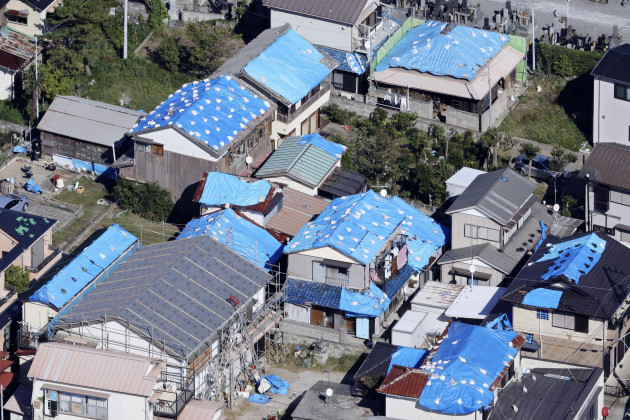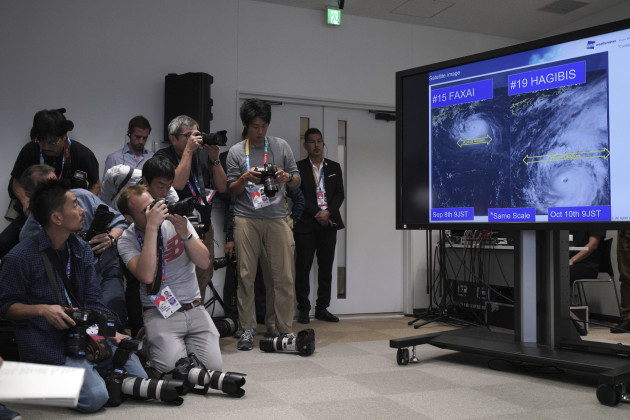YOU HEAR IT every November, or three out of four of them at least.
And then it’s the same thing in June, only with the roles reversed.
Test match results are pelted with salt because on top of home advantage, the tail-end of either the southern or northern hemisphere season is a reasonable caveat to any home victory.
It’s far from the biggest issue in the game, the shoes can quickly be slipped onto the other foot and, in many ways, it adds a little intrigue to a sport in which just a few traditional superpowers face off against one another within an immovable ring-fence.
The World Cup brings an exception to that while also highlighting the gap between Tier one and Tier two.
The tournament wasn’t always immovable in its place on the calendar, the first two to be held in the southern hemisphere (1987 and 1995) were played out across May and June. The professional era pushed it into a permanent September-October slot and there it has stayed. Typhoon season or no typhoon season.
Today’s announcement that at least two World Cup pool fixtures are to be abandoned due to the coming storm is unpalatable, but perfectly understandable. Safety of supporters and stakeholders must come first. But let them come first from a long way out rather than as part of a panicked contingency measure.
he June-to-October typhoon season is an enormous block of time around which to try and work. Yet, consider a system in which the sport’s organisational bodies work together to find solutions to issues rather than resist change or invoke it for their own foreseeable short-term benefit. A way to avoid bringing the sport’s players, fans and reputation into the direct path of Hagibis could have been found.
New Zealand head coach Steve Hansen decided to speak out from his nation’s perspective before the World Cup kicked off and that spoke volumes about the discord running between organisations.
“The Six Nations rule world Test rugby programs,” claimed Hansen, “they don’t want to give that up and until they’re prepared to give that up, we’re not going to see any progress in that area.”
Hansen wanted World Rugby to be “strong enough to say, ‘righto, this is what we’re doing, we’re going to have a global season’”.
The game’s governing body have tried to push through a global season this year with the ill-fated World League. The proposed 12-team league pencilled the USA and Japan in among the top tier nations while rugby-rich, cash-poor nations in Europe and the Pacific were conspicuous by their absence from any grand plan.
Although unions in the Six Nations are intent on preserving the sanctity of their well-established cash cow of a tournament, it was the players – including New Zealand captain Kieran Read among other Sanzaar-based stars – who showed a united front refusing to back the mooted global tournament.
Welfare of players is a difficult argument to counter. Even Fifa polished their turd of a decision to bring the football World Cup to Qatar by changing tack and making it a November-to-December deal, when you might have imagined such a ludicrous organisation sitting back and hoping for an unseasonably cool summer in the desert.
In a Rugby World Cup sprinkled with welcome shock results, placing an asterisk next to the final standings of (at least) two pools and denying Italy and France even an opportunity to upset the front-runners is a bitter pill for all in the sport to swallow.
“If New Zealand needed the points, it wouldn’t have been cancelled,” said Italy’s Sergio Parisse, voicing a feeling across the game that rules do not get applied with equal force for all.
At times, rugby can be a sport with great agility of governance. Tournaments are expanded, borders are crossed, laws are changed regularly and the use of the TMO was once held up as a paragon and a stick to beat all other sports with.
From next year, the global calendar will change. Yet it is a glacial-paced erosion of century-old norms with tournaments moved by mere weeks and a June Test window pushed to July.
France 2023 – fingers crossed – won’t be hit by a predictable annual series of weather events, but this World Cup has. And this weekend’s gaps in the fixture list are symptomatic of a rigid calendar wedged between conflicting interests.
- Originally published at 13.38
The42 is on Instagram! Tap the button below on your phone to follow us!



